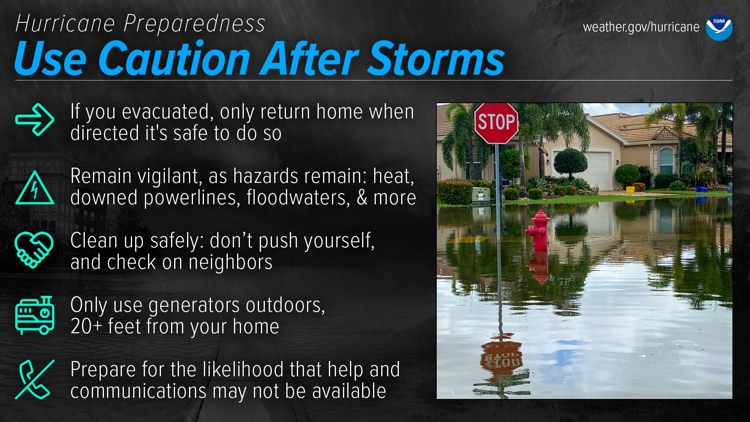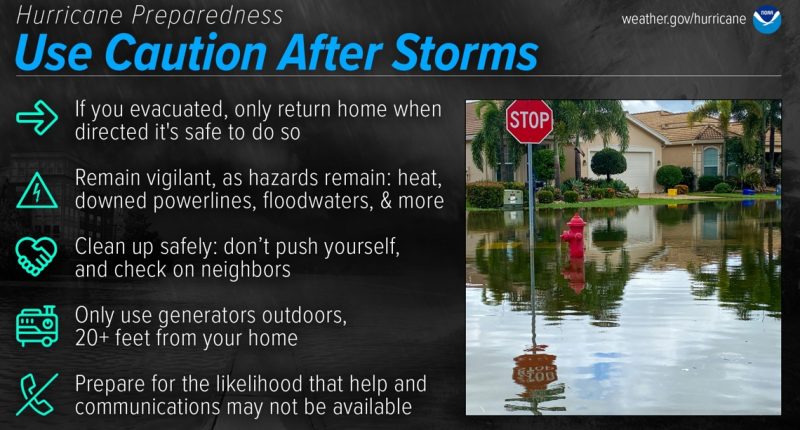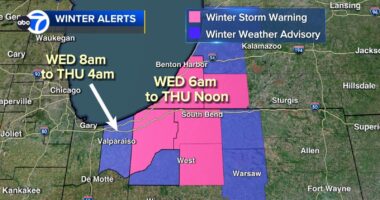Share this @internewscast.com

The goal isn’t just surviving the storm, it’s also surviving what comes next.
JACKSONVILLE, Fla. — With Hurricane Preparedness Week nearing its end, officials are highlighting a crucial, yet frequently ignored, message: the hazards do not vanish once the storm has passed.
The theme for Friday, “Use Caution After the Storm,” serves as a warning to those in hurricane-prone regions that the post-storm period can be as dangerous as the storm itself. The National Hurricane Center (NHC) reports that close to half of all fatalities associated with hurricanes occur after the most severe weather has subsided.
“In recent years, we’ve observed a significant number of deaths following tropical storms and hurricanes — particularly after major hurricanes,” stated Dr. Michael Brennan, NHC director. “Extended power outages pose serious risks. Consider the scenario of a hurricane aftermath in Florida during August or September without electricity. The heat can be intense. Without air conditioning, people are vulnerable. We often see fatalities due to heart attacks, other health problems, or accidents occurring during clean-up or while driving.”
Brennan added that the goal isn’t just surviving the storm but also surviving what comes next.
Always remember also to only return home when local officials declare it safe after an evacuation. Many post-storm hazards — such as downed power lines, gas leaks, unstable structures, and floodwaters — may not be immediately visible.
Flooding remains a top concern, even after a storm’s center has passed. Roads can be washed out or hidden under water, posing a major risk to drivers. Just 12 inches of water can sweep a vehicle away, and floodwaters can carry harmful bacteria, chemicals, sharp debris, and even dangerous animals.
Cleanup efforts must also be approached with caution. Always remember to wear protective gear, working during cooler hours, and staying hydrated. Overexertion during clean-up can lead to serious health issues, including heat stroke and heart attacks which is becoming more and more of a problem in recent years.
Another major threat in the aftermath is the misuse of portable generators. Carbon monoxide poisoning is one of the leading causes of death following hurricanes. Generators should never be used inside homes or garages, even with doors and windows open. They must be placed outside, at least 20 feet from any openings.
Key thing is to be prepared after a major hurricane for extended power outages and how that could impact life and recovery.
More information can be found at our Hurricane Central Page.

















